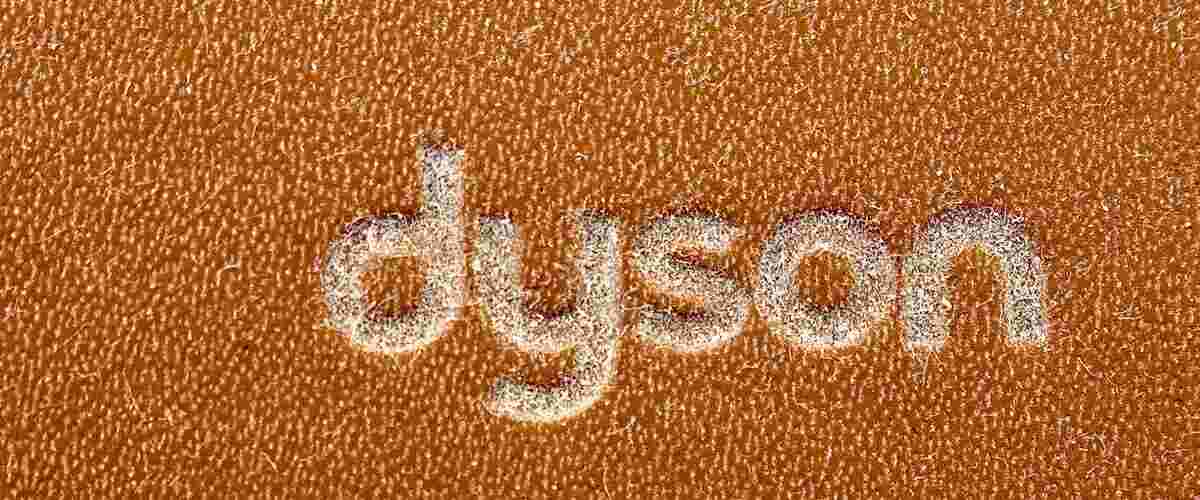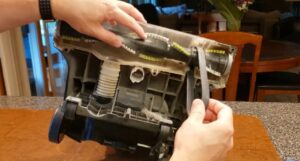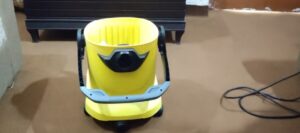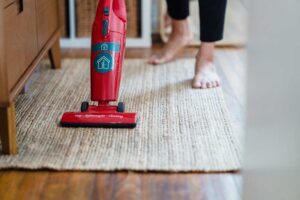Dyson is a popular company for its high-quality vacuum cleaners, fans, hair dryers, and other innovative home appliances. It was founded in the UK in 1991 by Sir James Dyson. Today, it’s a British–Singaporean multinational company.
Dyson was not a brand at first, but rather an innovative company that quickly took the lead in vacuum cleaner technology with Sir James Dyson’s invention of the bagless cyclonic vacuum cleaner. Today, it sells products in more than 80 countries, and for many people, the name Dyson comes to mind when they think of premium, high-tech vacuums. But behind that brand lie complex choices about where and how Dyson products are manufactured, and those locations influence costs, quality, supply chains, and consumer perception.
Table of Contents
Where Are Dyson Vacuums Made Today?
Many consumers ask: Where are Dyson vacuums made? The answer is not simple because Dyson doesn’t make everything in just one country. The company designs and tests its vacuums in the UK, but most of the manufacturing happens in Malaysia. The special digital motors are made in Singapore, and some parts come from China and the Philippines. By working this way, Dyson combines smart British engineering with efficient manufacturing in Asia. This helps the company make high-quality vacuums without making them too expensive.
Dyson’s Manufacturing Journey (From UK to Asia)
Dyson’s story begins in the UK. In the late 1970s, James Dyson experimented with a prototype in a shed, and it took him five years and 5,127 prototypes to perfect the invention, which was first sold in Japan under the name “G-Force”.
In the early years, Dyson manufactured its vacuums in the UK. Dyson’s first big success, the DC01, was manufactured in Chippenham and later in Malmesbury, Wiltshire. During this time, the company grew rapidly, capturing almost half of the UK vacuum market by 2001. Subsequent models like the DC02 and DC07 added advanced features, playing a major role in enhancing Dyson’s reputation for innovation.
The big shift came in 2002, when Dyson moved its vacuum manufacturing to Malaysia. The same move was made for washing machines in 2003. This was more than a factory move—it was a strategic decision to benefit from Asia’s strong manufacturing ecosystem and cost efficiency.
After that, Dyson gradually expanded its operations. Motor production was set up in Singapore’s Tuas area, and operations also began in the Philippines. These steps show how Dyson combined British innovation with Asian efficiency to build a strong, global supply chain.
Why Did Dyson Moved Production from the UK?
The main reasons Dyson moved production from the UK to Malaysia was cost efficiency, as manufacturing vacuums in Malaysia was about 30% cheaper than in the UK. These savings allowed Dyson to invest more in research, development, and robotics, helping the company innovate and grow.
Although the decision was practical, it sparked some controversy due to its impact on manufacturing jobs in the UK. About 65 jobs in Wiltshire were affected. However, Dyson made it clear that design, engineering, and R&D would remain in the UK, ensuring British innovation stayed at the company’s core.
Labour and supply chain proximity also played a major role.. Having skilled workers in Asia and close proximity to key suppliers helped Dyson speed up its production process. James Dyson also cited bureaucratic problems in Europe, but later did not blame Brexit when relocating headquarters. That has raised concerns among some critics, as around 65 jobs in Wiltshire have been lost. However, Dyson has confirmed that design and research jobs will remain in the UK.
Looking at Dyson’s global production shift, it’s clear they didn’t move just about cost. Many brands relocate to Asia for efficiency, but Dyson chose a slightly different path. They built their own factories and partnered with reliable suppliers. This way, they retain full control over quality, minimize gaps in the supply chain, and maintain environmental sustainability.
In short, the move to Asia was strategic, not just financial, and it allowed Dyson to scale globally while keeping its premium quality intact.
Who Actually Manufactures Dyson Vacuums?
While Dyson handles all design and engineering internally, but the actual vacuum production is carried out by third-party manufacturers. In Malaysia, Dyson works closely with VS Industry Berhad, one of the largest electronics manufacturers in Southeast Asia.
This partnership allows Dyson to leverage VS Industry’s strong manufacturing capabilities while staying focused on its core work—design and innovation. Dyson remains deeply involved in the production process, including quality assurance and raw material sourcing, while VS Industry provides integrated manufacturing services such as assembly, sourcing, and distribution. This collaboration helps Dyson maintain high product standards and continue innovating, as the company invests heavily in R&D while relying on VS Industry’s manufacturing efficiency to produce vacuums and other products effectively.
Dyson Headquarters Move (Singapore)
In 2019, Dyson moved its global headquarters from the UK to Singapore. The main reason for the move was to position the company closer to its rapidly growing Asian market, as well as near its manufacturing and supply chain centers. Although Dyson has moved its corporate headquarters, it has maintained significant research and development (R&D) facilities in the UK and still sees itself as a quintessentially British company. Dyson has made it clear that the decision was made for purely commercial reasons.
This move allows Dyson to make faster decisions for the Asian market and take advantage of the region’s growing consumer demand and technological capabilities.
Environmental and Sustainability Commitment
Dyson factories are using renewable energy and are working to make their manufacturing processes more environmentally friendly. By the end of 2022, 100% of all Dyson-owned factories and 65% of the electricity used in Dyson offices worldwide came from renewable energy or was covered by renewable energy assurance certificates.
Dyson aims to achieve net-zero carbon emissions by 2050. To achieve this, they will follow circular design principles focused on using sustainable materials and reusing and recycling.
Who Are Dyson’s Competitors?
Dyson faces strong competition in the vacuum market. One of the biggest rivals is Shark, especially in the UK and the US. Shark offers similar bagless cordless vacuums, often at lower prices, and has built a strong reputation for value and versatility.
Another major competitor is Miele, which offers premium bagged and bagless vacuums that focus on durability, build quality, advanced filtration, and quiet performance. Traditional brands like Hoover and Vax compete mostly through affordable prices and long-standing reputation, appealing to buyers who want value for money. Meanwhile, Bosch brings German engineering precision into the vacuum market, emphasizing efficiency, reliability and and sustainability.
In the cordless vacuum segment, Samsung has emerged as a strong competitor, combining sleek, modern designs with advanced battery and suction technology, directly challenging Dyson’s innovation-focused models.
Beyond vacuums, brands like LG and Electrolux are competing in the home appliance market. Dyson stands out for its cyclone technology and research, but these rivals push Dyson to innovate. This gives consumers like us more options. So it’s important to compare products based on your needs—like cleaning pet hair or cleaning hard floors.
Frequently Asked Questions
Where Exactly Is the Dyson Malaysia Factory Located?
The main Dyson Malaysia factory is in Johor, through partnerships like the Meiban-Dyson plant. It’s a hub for vacuum assembly, benefiting from Malaysia’s manufacturing ecosystem.
Are Dyson vacuums really made to last?
Honestly, I’ve always been impressed by how long Dyson vacuums last. With a little care — like cleaning the filters regularly and replacing batteries when needed — they can easily run for 5 to 10 years.
That said, they’re not perfect. Some models can have reliability issues, especially with battery life. But overall, if you take good care of them, Dyson vacuums are built to last.
Is Dyson made in the USA?
No, Dyson vacuums are not made in the USA. They are designed and engineered in the UK, but most of the actual manufacturing takes place in Malaysia. On top of that, some parts and their digital motors come from Singapore, China, and the Philippines.
Are Dyson Vacuums Made in the UK Anymore?
No, production moved out in 2002, but UK sites focus on Dyson innovation hubs and R&D, ensuring British engineering influences every product.
What About Dyson Sustainability in Manufacturing?
Dyson prioritizes eco-friendly practices, like using renewable energy and aiming for full recyclability by 2030. Their global supply chain includes responsible sourcing to minimize environmental impact.
Does Dyson Manufacture in China, and Does It Affect Quality?
Yes, some parts actually come from China through joint ventures, but Dyson keeps a close eye on quality. Thanks to their strict standards, these vacuums often score at the top in independent performance tests.
Who Owns Dyson, and Is It Publicly Traded?
James Dyson and family own it privately – no stock market involvement, allowing focus on long-term innovation over short-term profits.

Welcome to Homenias, I’m Jaman M, and I’m here to help you discover the best home products. With years of experience, they offer genuine reviews and helpful guides. Their mission is to make your choices easier. It’s organizing your space or finding creative solutions. Explore how the right products can enhance your everyday life. Don’t miss out on finding the best home products to raise your living experience.





